As one of the leading artists of Italian music, conductor Paolo Olmi has an admirable track record of achievements with many tours spanning from Asia to Europe, contributing to connecting Italian culture with international friends, especially Vietnam.
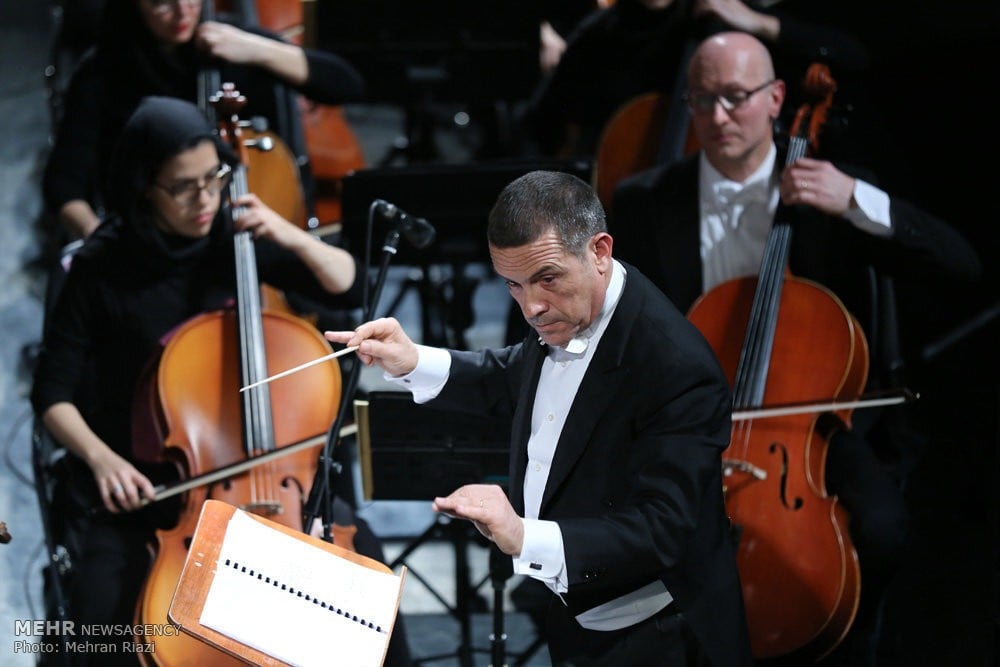 |
Conductor Paolo Olmi had the choir perform Beethoven's Symphony No. 9 "Ode to Joy" to encourage people in countries to stay resilient in the face of the pandemic. (Source: Tehran Times) |
Despite his 69 years of age, Mr. Paolo Olmi still exudes the calm and charismatic demeanor of a conductor with a career spanning more than four decades. In an interview with a reporter from TG&VN Newspaper, he clearly expressed his strong love and in-depth knowledge of Italian music, and expressed his hope for the potential for cultural exchange between Vietnam and Italy in the future.
Turning point in music career
You chose medicine in college, but suddenly switched to music. What prompted you to make this choice?
I really like medicine, but the workload is quite heavy because I have to be on duty at a medical facility all the time.
I love working in the music industry and can still work and conduct orchestras at the age of 69.
But if I were a doctor at a similar age, I would not be able to take responsibility for performing surgeries, because it is extremely risky to the patient's life.
Besides, I have a passion for traveling and this job gives me the opportunity to travel to many countries around the world, meet international friends and interact with diverse cultures.
Previously, I was the first Italian conductor to perform in China in 1988, and also had memorable tours in Cuba and Congo.
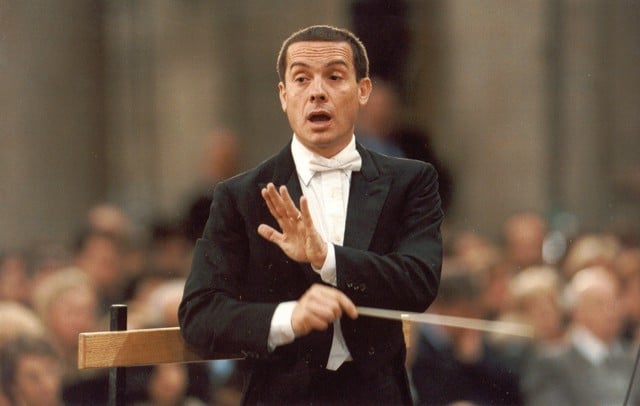 |
Conductor Paolo Olmi won the award for best opera of the year for his excellent production of William Tell at the Thèâtre des Champs Élysées, Paris. (Source: Ravenna and Surroundings.it) |
Italy has always been considered the musical heart of Europe and the birthplace of famous names. So who has inspired you?
I greatly admire the generation of conductors like Antonino Votto and Gino Marinuzzi, but the one who inspires me most is Victor de Sabata. His conducting style is poetic and creative.
In my field, conductors must show respect for the original. However, to make the piece live and last over time, the conductor needs to add a personal touch. This is quite complicated, and Victor de Sabata is a successful figure in this aspect.
There is also Claudio Abbado, who has a great ability to control the orchestra. Not far from my house is the home of conductor Riccardo Muti, now 82 years old and an icon of Italian music.
The development of Italian music has always contained something called the “Italian tradition”. Throughout the generations of artists such as Giuseppe Verdi, Arturo Toscanini, Antonino Votto and Riccardo Muti, everyone tried to learn from the experience of their predecessors.
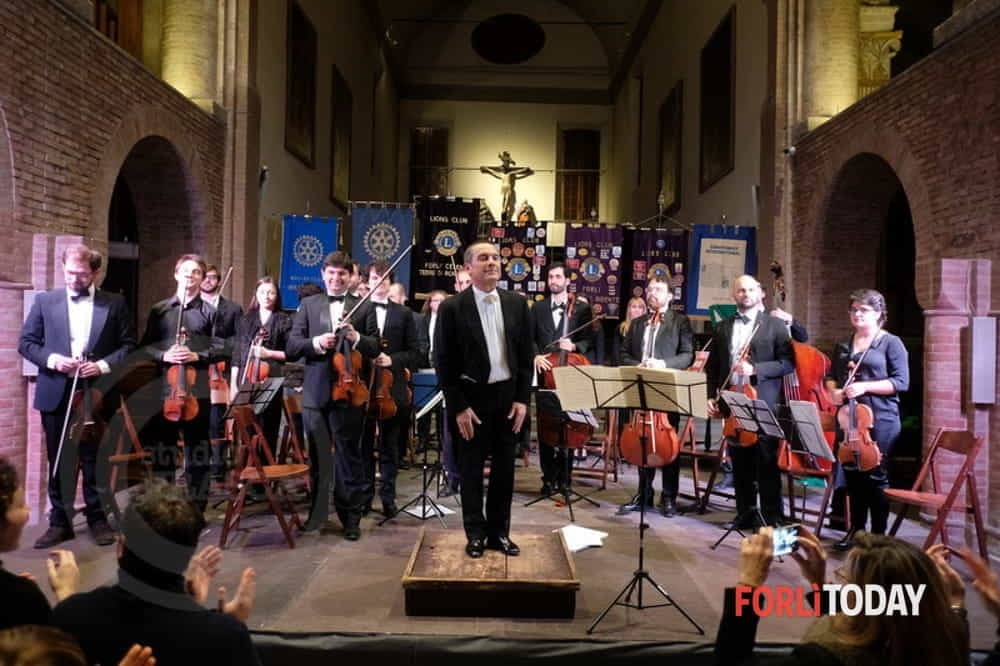 |
Conductor Paolo Olmi and the Young Musicians European Orchestra perform at the San Mercuriale Monastery in 2018. (Source: ForlìToday) |
Starting his career as a conductor in 1979, he has toured many major theaters in Europe, America and Asia. During his tours, what is his awareness of promoting the country's image?
On the scientific and economic front, Italy may not be prominent, but I believe that everyone finds it interesting to comment on the cultural, artistic and painting values of the boot-shaped land.
For Italians, opera is the linguistic bridge through which our country communicates with the world. Looking at the current context, concepts related to computers, technology and software are all translated into English. But in music, everything is translated into Italian, everyone uses words like piano, forte, adagio, opera.
So I always encourage the government and academies to use opera to promote the country's image to international friends. This is a big goal for us.
Vietnam-Italy cultural bridge
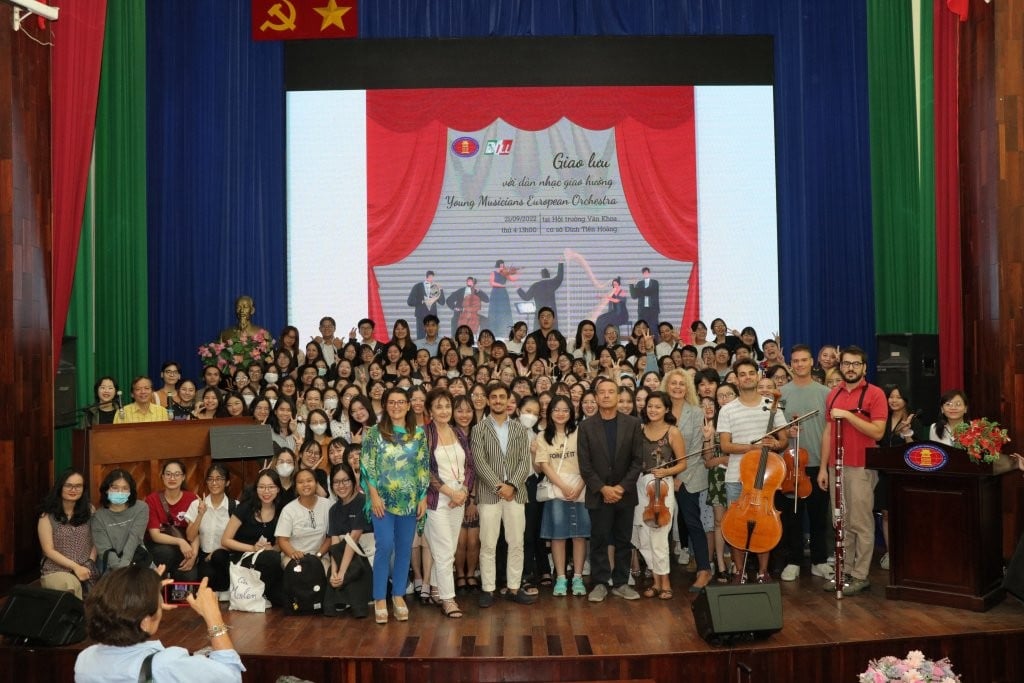 |
Conductor Paolo Olmi and the Young Musicians European Orchestra participated in an exchange with students from the University of Social Sciences and Humanities in Ho Chi Minh City in September 2022. (Source: Ho Chi Minh City National University) |
Last September, you participated in the Italian Night performance and an exchange program with students from the University of Social Sciences and Humanities in Ho Chi Minh City. Can you share your impressions of your trip to Vietnam?
I gave two talks at the university. But what surprised me was that there were 200-300 people who attended and all listened attentively when I gave a presentation on opera knowledge. Everyone showed a clear interest in this subject and learned the lesson very quickly.
However, listeners do not necessarily need to have profound knowledge to understand opera music, because what we need is the ability to feel. In opera, if someone says I love you, you can immediately feel whether that person really loves you or not. That is the power of music.
While Italian music places melody at the center, British and German music places more importance on harmony than melody. Therefore, Italian music has a vertical structure, while other countries' music is horizontal. This technique of melody design is closely related to the physical and physiological structure of the human ear.
It can be said that the relationship between the ear and the brain is like a melody, not a harmony. That is why I believe that Italian music has always been highly appreciated.
I often joke that if humans had only 5 minutes to send a message to a new planet, we would send a tape recording of Giuseppe Verdi's music.
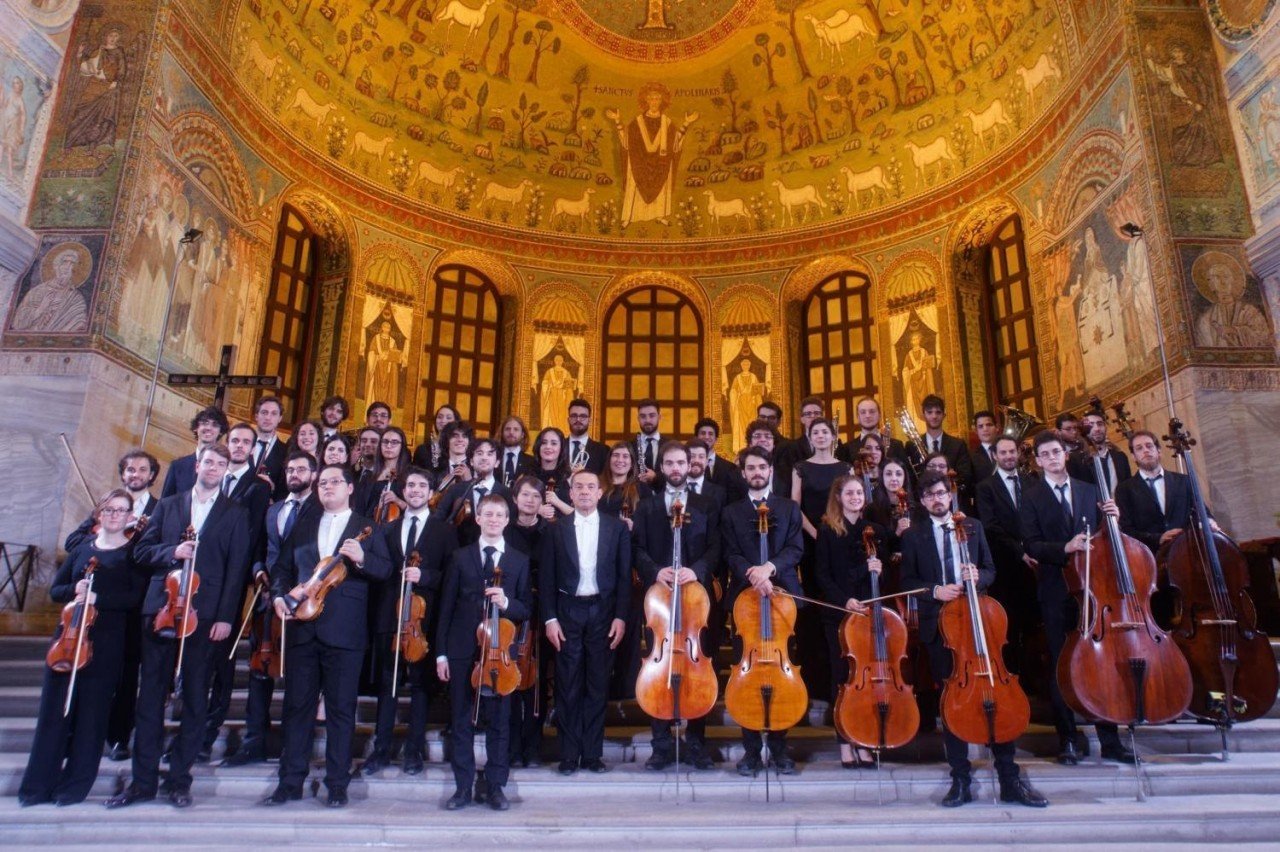 |
18 Italian opera and symphony artists participated in the performance at the Ho Chi Minh City Ballet Symphony Orchestra and Opera (HBSO). (Source: PetroTimes) |
In the context of the music market becoming vibrant again after three years of hiatus due to the Covid-19 pandemic, will there be more musical exchanges between Vietnam and Italy in the near future?
We are actively promoting artistic exchanges between the two sides. Last year, 18 Italian opera and symphony artists performed at the Ho Chi Minh City Ballet Symphony Orchestra (HBSO). We successfully harmonized with musicians from the Saigon Philharmonic Orchestra.
Since the Covid-19 pandemic has subsided, this year we have more time to prepare. At the end of September, I want to bring many young artists to Vietnam to exchange.
This is something I really like because after the talk at the university in Ho Chi Minh City last year, many Vietnamese students have kept in touch with our group of musicians through email and WhatsApp. This is exactly what we aim for, hoping that people will interact with each other more.
President Vo Van Thuong’s visit to Italy last July marked an important milestone on the occasion of the 50th anniversary of diplomatic relations and the 10th anniversary of the Strategic Partnership between Vietnam and Italy. How do you assess the prospects for cultural exchange between the two countries since this milestone?
Italy and Vietnam are two countries with a traditional friendship dating back to 1973, when the Italian people had deep sympathy for Vietnam because they had both experienced the bombings. Now, music can be the first stepping stone for cultural exchange between the two countries.
When I came to Vietnam, I suddenly realized that Vietnamese opera was based on the French opera school, even the theater in Saigon was modeled after the French style, not the Italian one.
However, I feel that over the past 20 years, Vietnamese people have gradually become more interested in Italian music. This does not reflect any political meaning, but simply because Italian opera conveys emotions better.
I have never listened to Vietnamese music, but just two weeks ago, I had the first time to enjoy your music during the reception of the President of Vietnam visiting Italy.
I would like to add that I am extremely honored to be invited to the welcoming ceremony as a musician, not a politician or businessman. I hope that I can further deepen the cultural and artistic exchanges between the two countries.
Source



![[Photo] Prime Minister Pham Minh Chinh attends the groundbreaking ceremony of the Tu Lien Bridge construction investment project](https://vphoto.vietnam.vn/thumb/1200x675/vietnam/resource/IMAGE/2025/5/19/d4a14c8f00214e42893e7760b91df468)
![[Photo] Party and State leaders visit President Ho Chi Minh's Mausoleum](https://vphoto.vietnam.vn/thumb/1200x675/vietnam/resource/IMAGE/2025/5/19/d7e02f242af84752902b22a7208674ac)

![[Photo] Special flag-raising ceremony to celebrate the 135th birthday of President Ho Chi Minh](https://vphoto.vietnam.vn/thumb/1200x675/vietnam/resource/IMAGE/2025/5/19/1c5ec80249cc4ef3a5226e366e7e58f1)
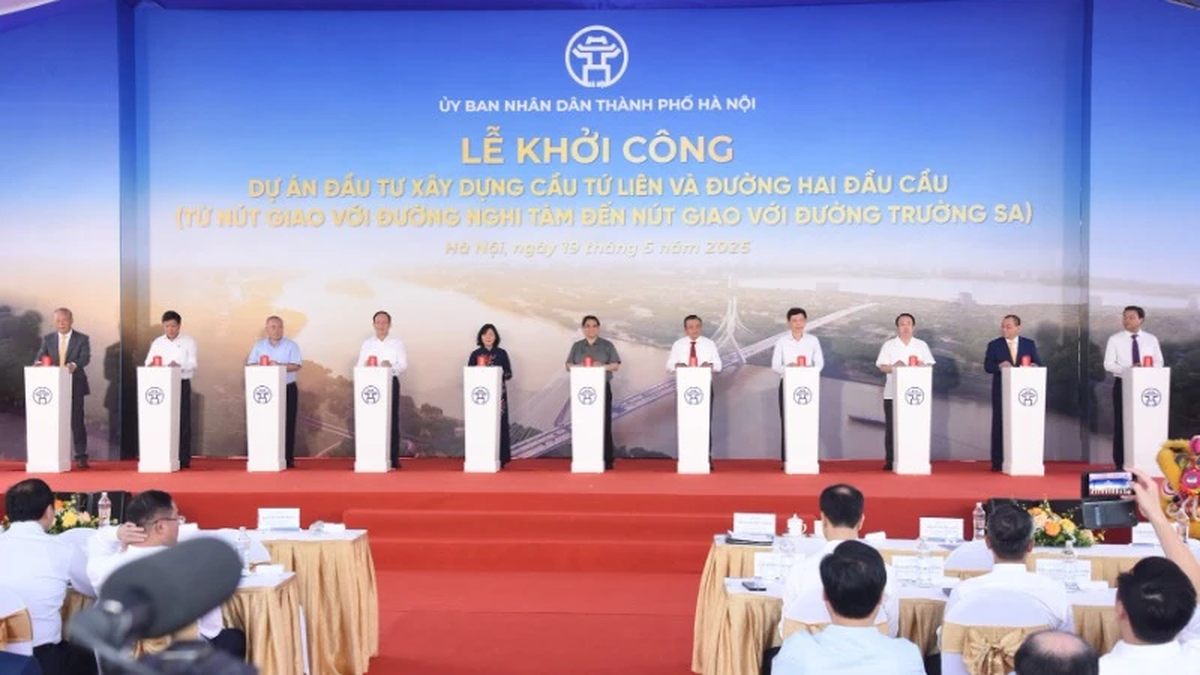
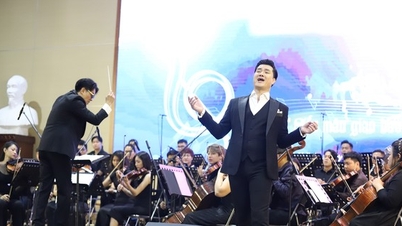




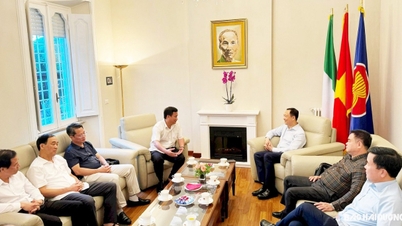

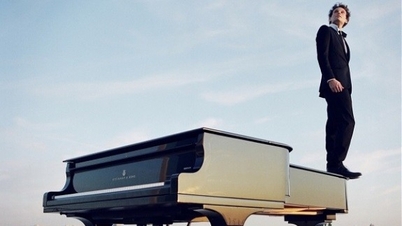



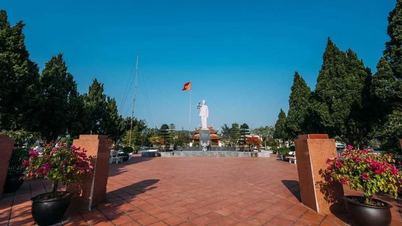









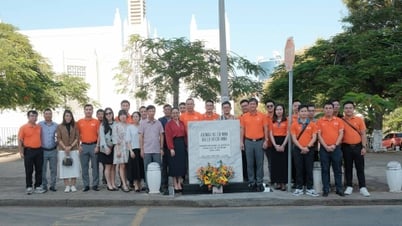

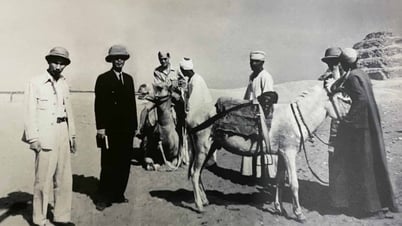
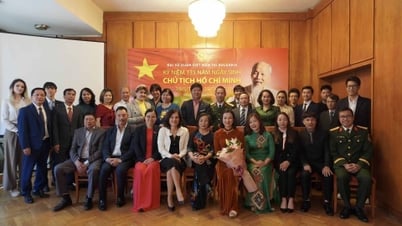
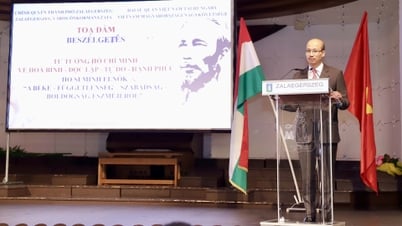


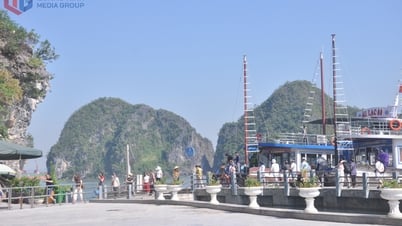
















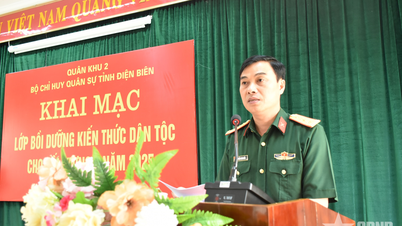


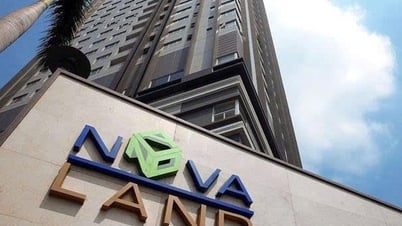
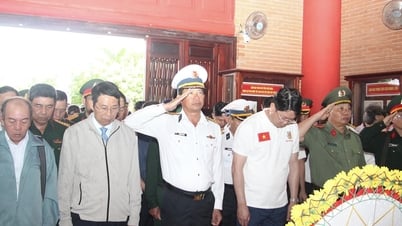

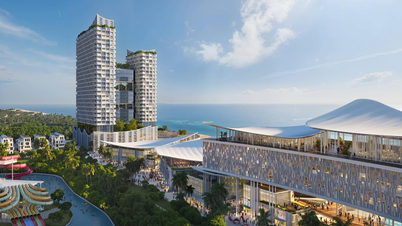
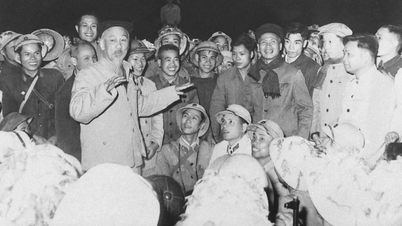

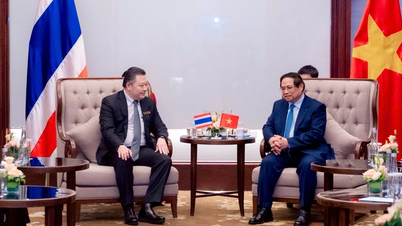
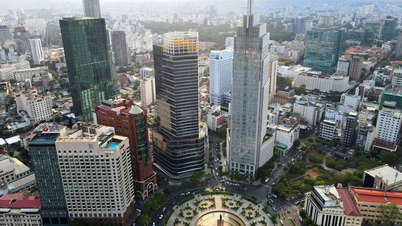




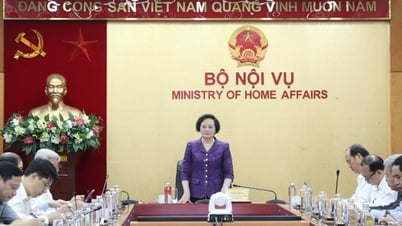

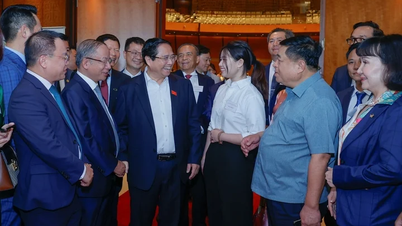

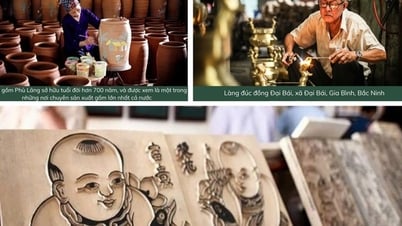
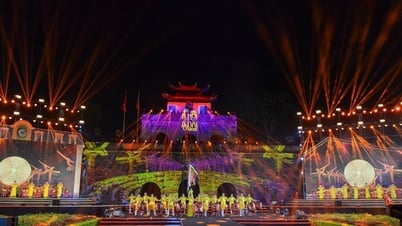


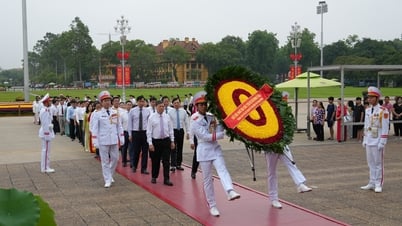



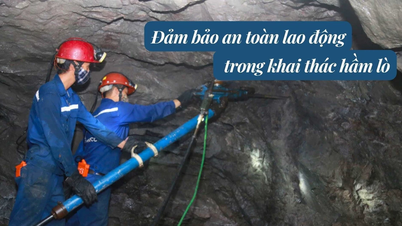




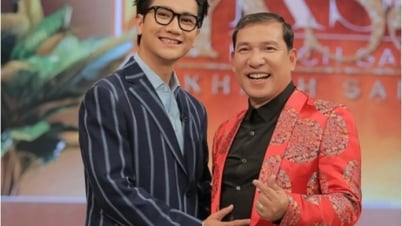


![[VIDEO] - Enhancing the value of Quang Nam OCOP products through trade connections](https://vphoto.vietnam.vn/thumb/402x226/vietnam/resource/IMAGE/2025/5/17/5be5b5fff1f14914986fad159097a677)






Comment (0)